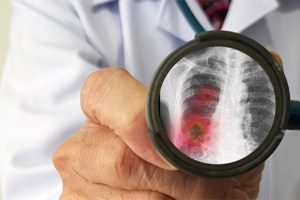
On August 17, 2022, the U.S. Food and Drug Administration (FDA) released a summary update of Medical Device Reports (MDRs) submitted in association with the Philips PE-PUR foam breakdown and associated Philips device recalls. The FDA indicates receipt of over 69,000 MDRs since April 2021, including 168 reports of death associated with the PE-PUR foam […]

Recalled Philips respiratory product deaths
On August 17, 2022, the U.S. Food and Drug Administration (FDA) released a summary update of Medical Device Reports (MDRs) submitted in association with the Philips PE-PUR foam breakdown and associated Philips device recalls. The FDA indicates receipt of over 69,000 MDRs since April 2021, including 168 reports of death associated with the PE-PUR foam breakdown or suspected foam breakdown in Philips’ sleep and respiratory care products.
Philips Respironics, a subsidiary of Royal Philips, first notified the FDA of their intention to conduct a field action on April 23, 2021. The company formally submitted a Report of Correction and Removal (under 21 CFR Part 806, also known as an “806 report”) on June 14, 2021. Philips voluntarily recalled certain devices at that time, due to potential health risks. The recalled devices included:
Doctors generally recommend these machines for people who have trouble breathing. to eliminate snoring and prevent sleep apnea. According to the Mayo Clinic, a CPAP machine delivers air pressure to a mask, which keeps the upper airway passages open, preventing snoring and sleep apnea. According to Johns Hopkins University, a CPAP machine delivers the same air pressure for inhales and exhales. A bilevel positive airway pressure machine, by contrast, delivers higher pressure when a user inhales.
The Philips devices used polyester-based polyurethane (PE-PUR) foam to lessen sound and vibration. That foam can break down. Foam breakdown may be caused by exposure to hot and humid conditions, or by use of certain cleaning methods. If foam does degrade, a person using the device could breathe in or swallow black pieces of foam or certain chemicals, including volatile organic compounds (VOCs) that are not visible.
At the time of the recall, Philips claimed not to have received any reports of life-threatening injury or death due to the device. According to Philips, risks of using a recalled device include the following:
Most of the devices recalled originally came from Philips’ DreamStation product line and were manufactured between 2009 and April 2021. Trilogy 100 and 200 Ventilators were recalled in June 2021. In January 2022, the FDA added additional Trilogy Evo ventilator and repair kits for Trilogy Evo muffler assembly to the recall. In June 2022, Philips also recalled V60 ventilators.
Philips announced a repair and replacement program for recalled machines with the recall in June 2021. On September 1, 2021, Philips announced that the FDA had authorized replacement of the problematic foam or replacement with new DreamStation 2 models. Philips invited users to register for the repair and replacement program on the Philips website.
On November 16, 2021, Philips provided updated guidance for patients, aligned with the FDA recommendations. Patients using recalled devices should consult a physician on a suitable treatment plan. The American Academy of Sleep Medicine (AASM) recommends that a patient’s medical provider prescribe a PAP device not affected by the recall.
On March 10, 2022, however, the FDA issued a notification order and announced that Philips’ efforts had been inadequate. The FDA ordered Philips to notify patients about the risks connected to ozone cleaner use; to provide instructions to users on registering their devices on the Philips website, and; to provide monthly updates to registered users, including updates about the replacement process.
On December 22, 2022, the FDA announced the recall of reworked Philips Respironics Trilogy 100 and Trilogy 200 ventilators, noting two issues:
Philips has distributed 13,811 of the Trilogy 100 and Trilogy 200 ventilators in the U.S., as well as 7,544 outside of the U.S. As a result of the recall, Philips has temporarily paused the reworking process for the Trilogy ventilators.
Were you or a loved one harmed by a defective Philips breathing machine? Parker Waichman LLP helps families recover monetary compensation for harm caused by a dangerous Philips breathing machine. For your free consultation, contact our law firm today by using our live chat or calling 1-800-YOUR-LAWYER (1-800-968-7529).


